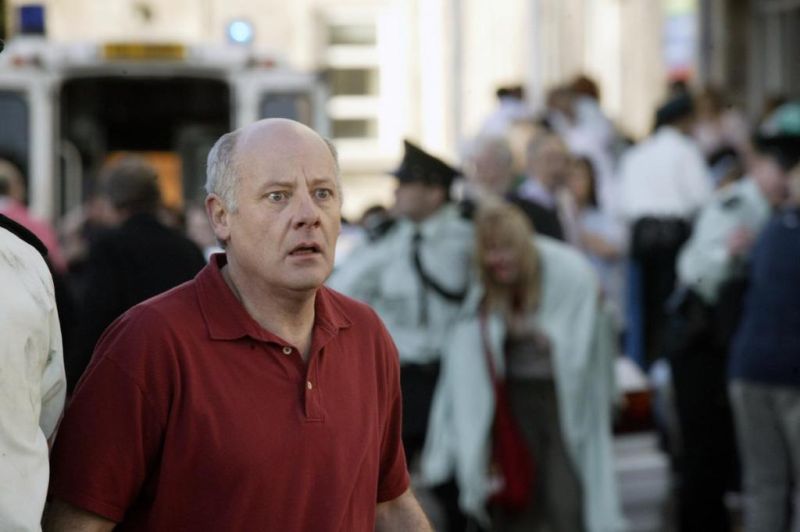
The compelling and affecting true-life drama Omagh (2004) begins with the infamous 1999 car bombing in Omagh, Northern Ireland. But Omagh is more about the aftermath – the pain and grief of the survivors as they strive for justice and accountability.
The bombing, by a nationalist splinter group, killed 29 on the small town’s market street. It had been just four months since the Good Friday Accord, and both mainstream republicans and unionists were getting used to the day-to-day peace of a post-Troubles era. The bombing was a jarring interruption of that peace, and many felt even more betrayed because the “warning” actually worked to draw more victims toward the lethal blast.
Omagh vividly depicts the carnage and chaos after the blast. The desperate search for loved ones amid the confusion is profoundly moving. We experience Omagh through the perspective of Michael Gallagher, father of one of the victims. He takes the helm of the survivors group as they seek answers – and run into a series of stone walls and cover-ups. The soft-spoken Gallagher may be the least histrionic leader in human history, and he is able to lead because the other survivors rely on his decency, good sense and quiet courage. We also see that – as in real life – people grieve at different paces, and the obsession of some in the family doesn’t work for others.
Michael Gallagher is played by the veteran actor Gerard McSorley (In the Name of the Father, Widow’s Peak, Braveheart, The Boxer, Bloody Sunday). It is McSorley’s powerful and profoundly sad performance that elevates Omagh.
Director Pete Travis employs a jiggly camera and a spare soundtrack to focus our attention on the characters with intimacy and immediacy. When we hear the door closed after the last guest leaves a funeral, the sound of the latch communicates more finality than would any dialogue.
Omagh is high on my list of Best Movies About the Troubles. It is available on DVD from Netflix.
